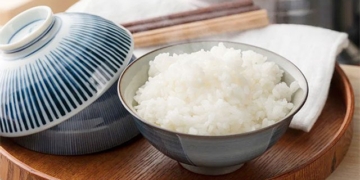Many women have a habit of purchasing feminine hygiene solutions for personal use, but most do not fully understand their purposes and how to use them.
 |
(Photo: Dan Tri) |
For several months, Ms. Tran Thi Sao, a 32-year-old married woman living in Binh Thanh District, Ho Chi Minh City, has been struggling with an issue she feels uncomfortable sharing. She has been experiencing abnormal vaginal discharge with an unpleasant odor and itching but is hesitant to seek gynecological help. As a result, she has been buying feminine hygiene solutions to wash with every day. While she noticed some improvement, the discharge returned once she stopped using the product.
According to Dr. Nguyen Thi Mong Loan, Head of the Outpatient Department at Tu Du Hospital, feminine hygiene solutions (gynecological washes) are not medications for treating diseases. They are simply specially formulated cleaning solutions designed for the hygiene of intimate areas.
Normally, the pH level in the vagina ranges from 3.8 to 4.2. Therefore, the feminine hygiene solutions available on the market have been formulated to match this environment. These solutions do not cause dryness, irritation, or alter the pH, nor do they kill beneficial resident bacteria such as Lactobacillus. On the contrary, they can also be used to assist in the treatment of vulvar and vaginal infections by modifying the vaginal pH.
Depending on the type of infection, there are suitable gynecological washes. For example, in cases of fungal infections, patients should use those with an alkaline pH such as Phytogyno or Bicarso. For infections caused by Trichomonas, doctors will recommend those with an acidic pH or containing metronidazole, such as Lactacid, Metrogyl.P, Gynoformine, etc.
Dr. Mong Loan also mentioned: “During menstruation, women should also use gynecological washes for daily hygiene. At this time, the cervix is slightly open, making it easier for infections to occur in the genital tract.”
However, women should not use these hygiene solutions for deep internal douching. Some components of these products, such as chlorine and drying agents, can easily cause vaginitis. Douching while having vulvar or vaginal infections can lead to ascending infections, making localized infections spread and become more serious and harder to treat.
Using feminine hygiene solutions is similar to using soap, followed by rinsing with clean water. It is crucial not to use these gynecological washes for other areas of the body. If you experience unusual burning, redness, or discomfort after using a gynecological wash, you should stop using it immediately and consult a doctor, as you may be allergic to one of the product’s ingredients.
It is important not to misuse feminine hygiene solutions. These products are chemical-based, and overusing them can be harmful to your body and disrupt the ecological balance of the vaginal environment.




















































